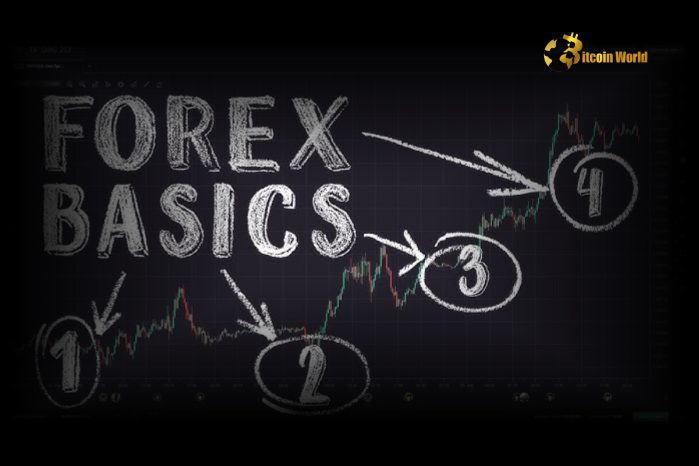Forex trading, or foreign exchange trading, is one of the most popular financial markets globally, attracting millions of traders. With daily transactions exceeding $6 trillion, the Forex market offers unparalleled opportunities for profit. However, understanding Forex basics is essential before diving into this dynamic market.
This guide will provide you with an overview of Forex trading, key concepts, and tips to get started as a beginner.
What is Forex Trading?
Forex trading involves buying and selling currencies in pairs to profit from their price movements. Traders speculate on whether one currency will rise or fall against another.
How Does Forex Trading Work?
- Currency Pairs: Currencies are traded in pairs, such as EUR/USD or GBP/JPY. The first currency is the base, and the second is the quote.
- Exchange Rate: The price of one currency relative to another.
- Buy or Sell: Traders can buy (go long) if they expect the base currency to strengthen or sell (go short) if they expect it to weaken.
Why Trade Forex?
1. High Liquidity
With billions traded every second, Forex offers deep liquidity, allowing traders to enter and exit positions quickly.
2. Market Accessibility
The Forex market operates 24 hours a day, five days a week, making it accessible to traders worldwide.
3. Leverage Opportunities
Forex brokers offer leverage, enabling traders to control larger positions with a smaller capital outlay.
Key Forex Concepts for Beginners
1. Pips
A pip is the smallest price movement in Forex, typically the fourth decimal place in most currency pairs.
2. Lots
Forex trades are measured in lots, which represent the size of a trade.
- Standard Lot: 100,000 units
- Mini Lot: 10,000 units
- Micro Lot: 1,000 units
3. Leverage and Margin
- Leverage: A tool that allows traders to amplify their positions. For example, 1:100 leverage means you can trade $100,000 with $1,000.
- Margin: The capital required to open a leveraged position.
4. Spread
The spread is the difference between the bid (selling) and ask (buying) price, representing the broker’s fee.
5. Forex Sessions
The Forex market operates across four major trading sessions:
- Sydney: Opens the market.
- Tokyo: Increases activity during Asian hours.
- London: The largest session by volume.
- New York: Complements London’s activity.
How to Get Started with Forex Trading
1. Learn Forex Basics
Begin with free resources like BabyPips or online courses to understand key concepts and strategies.
2. Choose a Reliable Broker
- Look for a broker regulated by reputable authorities like the FCA, SEC, or ASIC.
- Compare spreads, leverage, and platform features.
3. Open a Demo Account
Practice trading in a risk-free environment to build confidence and refine your strategies.
4. Start Small
Begin with a micro or mini account to limit risk while learning the intricacies of live trading.
Forex Trading Strategies for Beginners
1. Scalping
- Timeframe: Minutes
- Goal: Profit from small price movements.
- Tip: Focus on high-liquidity pairs during active market hours.
2. Day Trading
- Timeframe: Hours
- Goal: Capitalize on intraday price fluctuations.
- Tip: Close all positions before the market closes.
3. Swing Trading
- Timeframe: Days to weeks
- Goal: Capture trends and reversals.
- Tip: Use technical analysis to identify entry and exit points.
4. Position Trading
- Timeframe: Weeks to months
- Goal: Hold positions based on long-term market trends.
- Tip: Rely on fundamental analysis and economic data.
Essential Tools for Forex Trading
1. Charts and Indicators
- Moving averages, RSI, and Bollinger Bands help identify trends and market conditions.
2. Economic Calendars
Stay updated on key events like interest rate decisions, GDP reports, and employment data that impact currency values.
3. Forex Calculators
- Pip Calculator: Calculate the value of a pip in your trade.
- Margin Calculator: Determine the required margin for a position.
Common Mistakes to Avoid in Forex Trading
1. Overleveraging
Using excessive leverage can magnify losses. Stick to manageable levels based on your risk tolerance.
2. Lack of Risk Management
Always use stop-loss orders and maintain a risk-reward ratio of at least 1:2.
3. Emotional Trading
Avoid impulsive decisions driven by fear or greed. Stick to your trading plan.
4. Neglecting Education
Forex markets are complex; continuous learning is essential for long-term success.
FAQs
What is Forex trading?
Forex trading involves buying and selling currencies to profit from changes in exchange rates.
Can beginners trade Forex?
Yes, with proper education and practice, beginners can start trading Forex and gradually develop their skills.
What are pips in Forex?
A pip is the smallest price movement in a currency pair, typically the fourth decimal place.
How much money do I need to start Forex trading?
You can start with as little as $100, depending on your broker and the type of account you open.
What is leverage in Forex?
Leverage allows traders to control larger positions with smaller capital, increasing both potential profits and risks.
Is Forex trading risky?
Yes, Forex trading carries risks due to leverage, volatility, and market unpredictability. Proper risk management is crucial.
Conclusion
Forex trading offers exciting opportunities for those willing to learn and adapt to its dynamic nature. By understanding Forex basics, choosing the right broker, and practicing disciplined trading strategies, beginners can lay a strong foundation for success.
Whether you aim to trade full-time or diversify your investments, Forex trading can be a rewarding journey with the right tools and mindset. Start small, stay informed, and let your trading journey begin today!
To learn more about the innovative startups shaping the future of the crypto industry, explore our article on latest news, where we delve into the most promising ventures and their potential to disrupt traditional industries.
Disclaimer: The information provided is not trading advice, Bitcoinworld.co.in holds no liability for any investments made based on the information provided on this page. We strongly recommend independent research and/or consultation with a qualified professional before making any investment decisions.




